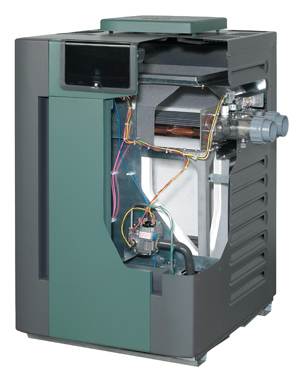How to Choose the Right Pool Heater
How to Choose the Right Pool Heater
There’s nothing quite like standing on your pool deck in a bathing suit, ready to jump in and enjoy some time soaking up the sun in your backyard swimming pool. You think you’re going to be refreshed after you take the plunge, but you might be in for a chilly surprise.
Maybe it’s May, maybe it’s September, or maybe it’s right after a heavy rain. Regardless, if you don’t have a heater
for your pool, you’ll come back up gasping for air and feeling like Jack and Rose from Titanic floating around the icy Atlantic Ocean.
If you want to extend your summer and enjoy swimming even when it’s a little cooler outside, a pool heater is essential. But choosing the right one for you takes a little more work than strolling into your local outdoor store and buying the first one you see. Don’t worry, though — we’re here to help. In this guide, we’ll show you everything you need to know to choose the right pool heater for an (extended) summer of fun.
Why you need a Pool Heater
Pool heaters do exactly what their name suggests — they make the water in your pool warmer. Now, that may not be necessary in the middle of July when it’s 96 degrees outside every day, but if you’re eager to open your pool early in May or keep it open until late September, you’ll need some help to keep it from turning into an ice bath.
A pool heater will be your best friend if you’re trying to extend your summer. By adding one to your backyard oasis, you can regulate your pool’s temperature to keep it comfortable and safe for swimming much longer throughout the year. After all, you paid a lot of money for your backyard swimming pool, you might as well enjoy it as long as you can each season.
Factors to consider when choosing a Pool Heater
First things first, when it comes to choosing a pool heater, you’re going to want to keep in mind what’s most important to you. Are you on a budget and want a heater that gives you the most bang for your buck? Are you concerned about the environment and want a heater that is the most environmentally friendly? Or do you simply want a quality heater that will evenly regulate your pool’s temperature without any extra bells and whistles?
Determining what you want most out of your heater will help you make a choice you can be happy about. Here are some factors to keep in mind:
Cost
Pools can be costly, even before adding all the bells and whistles. So it makes sense that the first question most people will ask when choosing a pool heater is, “How much?”
Cost isn’t limited to a heater’s purchase price either; if you’re not too pool-savvy, you might need to pay a professional to install the heater. And, of course, you’ll need to account for maintenance and energy costs to keep your heater running.
Efficiency
For those who are more environmentally conscious (or just looking to save a bit more on the energy bill), a heater’s efficiency will be a major factor. Finding a heater that’s the best size for your pool (more on that later) will greatly improve its efficiency.
Pool covers can also be a great way for a heater to operate more efficiently — the cover is able to trap heat in the water much longer, meaning less time that the heater has to operate and less cost to you.
Where you live
Location and climate can have a major effect on your choice of pool heater. Some energy sources aren’t as accessible in certain places. And oftentimes, heaters work better in one environment than they do in another.
For example, if you live in a warm, sunny climate where you can rock board shorts almost the entire year, then a solar heater might be a great option for you! But if you live in a colder, cloudy climate, you may want to consider going with a gas or electric powered heater.
Types of Pool Heaters
Now that you’ve narrowed down what’s most important for you, it’s time to consider the different types of pool heaters and weigh their pros and cons.
Gas Pool and Spa heaters
Gas powered heaters are by far the most popular option for heating a pool. They are fueled by natural gas or propane, and are able to heat water quickly. They’re also excellent at maintaining an even water temperature, even if air temperature fluctuates.
One of the benefits of a gas powered heater is it’s much cheaper upfront compared to the other types of heaters.
However, they require fuel in order to operate, and costs can range depending on energy rates where you live, the climate, and how long you plan to use the pool. It’s also important to have a gas powered heater professionally installed, which can raise the cost as well.
Typically, gas powered heaters have a lifespan of about five to eight years. If installed properly and maintained well, they are capable of lasting longer. However, unbalanced pool water may cause corrosion within the heater and soot or carbon buildup from burning fuel can make the heater less efficient, meaning a shorter lifespan. Make sure to carefully read through the owner’s manual on your heater to learn how to properly maintain it and extend its lifespan.
Here are some Pros and Cons of gas pool and spa heaters:
Pros of Gas Heaters
-Cheaper purchase price than other types
-Heats water quickly
-Keeps water at a steady temperature despite changes in air temperature
Cons of Gas Heaters
-Purchasing fuel can be expensive
-Shorter lifespan than other types
-Not as environmentally friendly
Electric Heaters
Another heater with an affordable up-front cost is the electric heater. This type of heater operates by heating a metal coil with electricity, which in turn heats the water surrounding the coil. Electric heaters warm water slowly, and are considered the most inefficient out of all the different heaters.
Due to their inefficiency, electric heaters aren’t really recommended for anything larger than a hot tub or small spa, or any body of water that doesn’t need to be heated constantly. Trying to heat a large pool with an electric heater could cause your electricity bill to skyrocket, especially in the summer when a lot of electricity is needed for air conditioning.
Pros of Electric Heaters
-Good for hot tubs or other small bodies of water that don’t need constant heating
-Affordable purchase price
Cons of Electric Heaters
-Inefficient
-Heats water slowly
-Large electric bills
Heat Pump
If you’re wanting to power your pool heater with electricity but want one with more efficiency than an electric heater, look no further than a heat pump. Heat pumps operate in much the same way as an air conditioner; warm air is transferred from the atmosphere, compressed into a hot gas, then used to heat your pool water.

Heat pumps are a bit pricier upfront than a typical gas or electric heater, but they run a lot more efficiently, meaning
less cost to you in electricity bills. They also have a longer lifespan — up to ten years if you take good care of it. It’s important to note, however, that a heat pump is not a good option for people who live in colder climates, since the air temperature needs to be at least 45-50℉ for the pump to be effective.
Pros of Heat Pump Heaters
-Efficient
-Longer lifespan
-Less costly to operate
Cons of Heat Pump Heaters
-Higher upfront cost
-Not effective in cold climates
Solar
Solar pool heaters use energy from sunlight to regulate water temperature, and are growing in popularity for their efficiency and environmental friendliness. They can also last a long time — anywhere from 10-20 years on average — making it a good choice for a family who plans on staying put.
Solar powered heaters can range in size depending on the size of your pool and your heating needs, so it’s often recommended to have a professional come in to correctly size and install one. This will result in a higher upfront cost for a heater that’s already the most expensive of all the types, but may be well worth it once you factor in the savings from not having to constantly pay for gas or electricity. Solar heaters shouldn’t need much maintenance once set up either, so there’s additional savings.
Since solar heaters rely exclusively on sunlight to regulate the water temperature, they won’t be effective at night or on cloudy days. Some people mitigate this by purchasing a gas or electric heater as a back-up, and only use it when the solar heater is unable to operate.
Pros of a Solar Heater
-Environmentally friendly
-Efficient
-Cheap to maintain
-Long-lasting
Cons of a Solar Heater
-High upfront cost
-Won’t operate at night or cloudy days
Choosing the right size pool heater
Pool heaters are measured in BTU (British Thermal Unit) ratings. A BTU is the amount of energy needed to heat one pound of water by one degree Fahrenheit. Therefore, the higher a heater’s BTU rating, the faster your pool will heat up. Likewise, the larger your pool, the more you’ll want to get a heater with a high BTU rating.
It’s important when choosing your heater that you carefully take into account what size you’ll need to maintain that perfect water temperature. To do so, you need to know two things: the surface area of your pool, and the temperature you wish your water to be.
You can find your pool’s surface area by multiplying its length by its width for rectangular pools. Then for the second factor, subtract the average temperature of the coldest month you plan on using your pool from your ideal water temperature. You’ll use that difference in this calculation:
Area of pool x temperature difference (℉) x 12 = BTUs needed per hour
Solar heaters are sized a bit differently, and it’s typically recommended that people in sunny climates purchase a solar panel that is 70% the size of their pool, or 100% the size of their pool in cloudy climates.
While the above equation and recommendations are suitable for sizing pool heaters, there are several other factors that can be taken into consideration for finding the optimal sized heater, including wind speeds and exposure, humidity, pool covers, temperatures at night, and others. So while it may require a bit more out of your pocket, the best option for choosing the right size is to consult a pool professional. It’ll be better for your pool and for your sanity.
Conclusion
Choosing the right pool heater can be overwhelming and downright frustrating if you don’t know what you need or where to look. The biggest thing to remember though, is not to shop by price alone. You’ll find that, although some heaters may cost more in the beginning, they will save you money over time by lowering your energy repair bills.
You should always start by taking inventory of what your pool needs. Think about where you live, how long you want to be able to use your pool and your pools size to determine how much energy you’ll need to heat it. Once you do that, you’ll be ready to shop around for a pool heater that fits your needs perfectly, allowing you to extend your summer and enjoy swimming in your backyard pool even longer each year.



